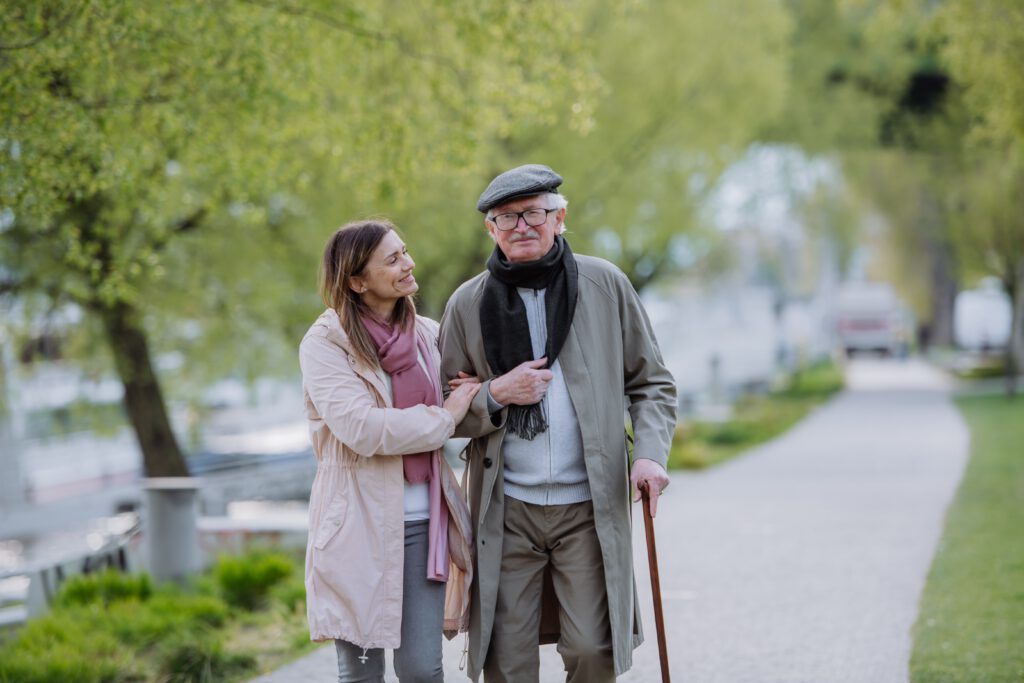Warning signs that an older person may need more support

Visiting family during the festive season has given many of us an opportunity to check how our older family and friends are faring. Perhaps you’ve noticed small changes in the behaviour or appearance of those you don’t see often?
If so, it may be time to consider whether they need extra help. According to research, that’s exactly what many of us have been doing. New data from UK later living marketplace Lottie has revealed a 70% increase[1] in care seekers searching for elderly care support in the new year. What’s more, over the last 12 months online searches for ‘carers group’ has risen by 3,048%.
Hannah Karim, care expert manager at Lottie offers six questions to ask yourself about a loved one if you’re at all concerned.
Has their appetite changed?
A loss of appetite can indicate a minor health concern, including tooth pain, says this reliable dentist in Richmond Hill NY. However, sudden changes in your loved one’s appetite (including a change in taste or digestion) and rapid weight loss could signs that they may not be looking after themselves, especially if they live independently. It’s something to keep an eye on.
You can encouraging your loved one to eat little and often. For example, foods rich in dairy (cheese, milk, and eggs), oily fish high in omega-3 and fruits and vegetables are all good options to maintain a balanced diet – especially as you age.
Have you seen them drinking enough?
Dehydration is a common challenge for older people, especially those with dementia. They may not recognise the signs they need to drink more or be able to communicate their needs easily.
When they’re dehydrated, people may also experience low blood pressure, weakness, dizziness. The risk of falls increases.
You can help hydration by offering your loved one a choice of drinks, encouraging them to eat fruit and vegetables with high-water content and understanding their medication.
Have they given up hobbies and activities?
There could be many reasons why your loved one loses interest in their hobbies or activities they’ve enjoyed before. For instance, a loss of mobility, worsened eyesight or they may be experiencing low mood.
However, this could be the early signs of a more serious health concern, such as dementia. In the early stages of dementia, your loved ones’ mood may change more frequently, and they may become anxious, depressed, or more easily irritated.
These changes can be difficult for both those living with dementia and their loved ones. However, support is available. If you’re concerned about your loved one, you can speak to their GP or a medical professional about getting an early dementia diagnosis.
How’s their mobility?
If you notice reduced mobility in your loved one or they’ve experienced falls and trips more recently than before, they may be finding it difficult to move around independently and confidently.
You can help to reduce the risk of falls by taking simple steps, such as keeping their homes free from clutter and trip hazards, including slippery surfaces and poor lighting. However, if you do notice a significant decline in your loved one’s mobility, it’s important to seek support from a health professional.
Does your loved one experience frequent aches and pains?
Whilst joint pain especially in the knees, hips and hands are common in older adults, the onset of dull aches and pains could be the sign of a health concern such as osteoporosis or arthritis.
Try to check in on your loved ones and monitor if they have any difficulty with everyday tasks such as, walking, cooking and opening jars or tins. This could be a sign your loved one is experiencing discomfort. A check up with a pharmacist or doctor can help your loved one to get the pain relief and support they need to live independently.
What about social interactions?
Living alone and poor social connections increase the risk of experiencing loneliness. If you’ve noticed your loved one has stopped sharing any stories of visits or activities with friends or family members, they may be experiencing social isolation.
Loneliness is a major concern for the elderly and can lead to mental health conditions such as depression. By talking to them about their feelings and offering emotional and practical support, you can help them to prioritise their wellbeing.
You could encouraging your loved one to join local clubs and groups. It’s a great way to increase their social interaction and make new friends. From walking clubs and coffee mornings, there are plenty of ways to boost your social life as you age.
Sharing care community
Hannah adds: ‘We understand caring for an elderly loved one can sometimes feel overwhelming – but there is always support available. Lottie has recently launched Care Space – an online support group for carers to connect, chat and share their experiences and advice.’
[1] Based on internal data from Lottie December 2022 – January 2023.
You may like to read:
- Our free download on Avoiding Loneliness
- Preventing dementia through diet and lifestyle changes
- Why digital inclusion matters

